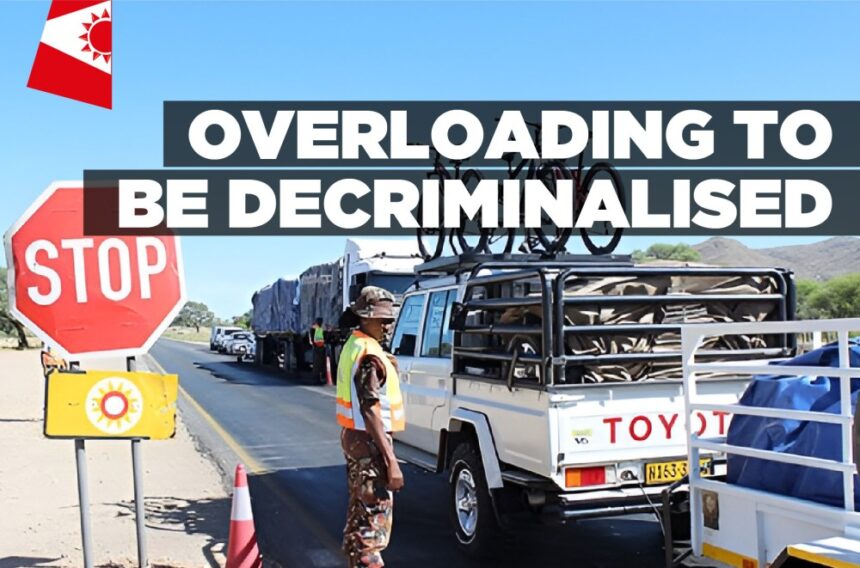Drivers to Pay Administrative Fines for Damages Caused to Roads
Staff Reporter
THE Minister of Works and Transport, John Mutorwa, introduced the Vehicle Mass Bill this week, which will see the decriminalisation of overloading and have drivers pay administrative fines instead.
Reading the bill for the first time in Parliament, Mutorwa said that Cabinet resolved that the Ministry of Works and Transport amends the Road Traffic and Transport Act, 1999 (Act Number 22 of 1999) to decriminalise the overloading offences and ensure that “culprits pay fees, proportional to the damage they caused on the road network.”
“The Bill aims to legalise the overloading offences as administrative offences. The current main legislative framework for road traffic and transport offences is (a) the Road Traffic and Transport Act, 1999, and (b) the Criminal Procedure Act, 1977 (Act Number 51 of 1977). It is therefore proposed that through this Vehicles Mass Bill, the entire transport logistics chain (consignor, consignee, operator and driver) should be legally responsible for overload offences,” Mutorwa said.
He added that the calculation of overload fees and penalties should be based on the overloaded weight and the distance travelled with the overload weight.
“Fees and penalties should compensate for damages caused to the road pavement as a result of overloading. The success rate of the prosecution of road traffic offences, including the overload offences, in the country’s courts is very low. The expectation is that if the process could be removed from the court system and dealt with administratively, then the success rate would be increased dramatically,” Mutorwa said.
He added that currently, the courts are overstretched and overstrained, but the overload offences do not carry the same level of blame and “moral indignation” as criminal offences, such as theft, rape, and murder.
“The deviation from the requirement of a public hearing, in ARTICLE 12 of the Namibian Constitution, in the case of overloading offences, is constitutionally possible if the overload offences are decriminalised and thus handled as administrative offences. Overload offences are, by their very nature, administrative offences and should be so indicated in an Act of Parliament and adjudicated in accordance with the principles of Administrative Law and not Criminal Law. The model for converting overload offences to administrative offences that has been developed is subject to strict prerequisites that will have to be met to prevent the Roads Authority and the Ministry of Works and Transport from being implicated in unnecessary litigation,” Mutorwa explained.
He added that the current information systems being used in Namibia in respect of road traffic fines are inadequate, as they are not linked to the Namibian court system, thus making it ineffective to collect fees for the rehabilitation of damages caused through overload offences.
Therefore, Mutorwa argued that the main objective of the Bill is to provide a comprehensive Vehicle Load Management System. Under this system, the offence and related offences, such as evading a weigh station or absconding a weigh station, become violations and will be adjudicated in terms of a streamlined administrative process.



Leave a Reply